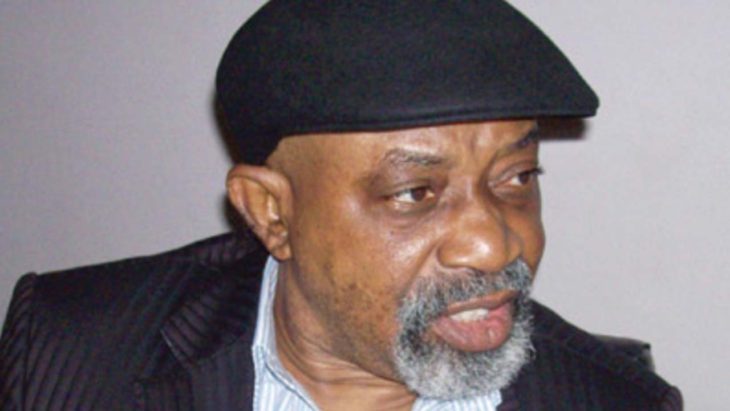Workers, Monday, booed the chairman of Nigerian Governors Forum, NGF, Abdulazez Yari of Zamfara, and the Minister of Labour and Productivity, Dr Chris Ngige, while making their submissions at the House of Representatives ad-hoc committee public hearing on the new minimum wage.
The general consensus by critical stakeholders at the hearing was that N30,000 was affordable and that the issue of revenue formula review was long overdue.
This is even as Yakubu Dogara, speaker of the House of Representatives, declared in his welcome address that the N30,000 being proposed was not even enough, saying Nigerian workers deserved a living wage.
The workers who stormed venue of the public hearing in large numbers did not, however, spare Governor Abdulazez Yari and Chris Ngige as they were both booed throughout their submissions.
At a stage, Ngige was forced to tell the teeming Nigerian workers that “if you like, don’t clap for me. As a rule here, you don’t clap,” the workers replied with a thunderous ‘time up! time up’.
In his submission, Ngige told the panelists that the decision of the National Council of States, NCS, was not cast on stone, stressing that for anybody to say there was an agreement was a misnomer.
He said: “This whole thing started when fuel was increased from N87 to N145, a Tripartite Committee was set up and it traversed the six geo-political zones of the country and the governors proposed N22,000, while the Federal Government wanted N24,000.
”Before now, there are states that were paying more than the minimum wage. Edo State I know for sure was paying N25,000 and other states, such as Rivers, Akwa Ibom, Delta and Lagos are already paying more than the FG.”
Rounding off his submissions, Ngige said the federal government would pay level one federal civil servants a minimum of N30,000.
In his submission, Ayuba Wabba, the president of Nigeria Labour Congress, NLC, told the stakeholders that any increase in workers’ wages would not translate into inflation.
Wabba said: “So far, 30 state governors have agreed to pay N30,000 and only six are still delaying their support.”
He explained that before the union arrived at N30,000, while states and the private sector submitted different minimum wage proposal.
According to him, a state even proposed N37,000 but after considering the economic situation, the union agreed that the minimum wage be N30,000 to enable all afford payment.
Giving a breakdown of how the union arrived at N30,000 minimum wage per month, Wabba said N30,000 per month translated to N1,000 per day for a worker, and N50 per day for every family in the case of feeding.
Chairman of NGF, Abdulaziz Yari, in his presentation, said the forum accepted what was approved by the National Council of States, NCS, as regards the minimum wage of N27,000.
While explaining that governors were not against Nigeria workers, he pleaded with the workers to understand the economic situation in the country.
“Let me also emphasise on the issue of revenue formula, the truth is that it’s long overdue for a review,” he said.
Shortly after his presentation, the congregation started chanting”Ole ole ole” to the hearing of chairman of the NGF, Abdulaziz Yari
Other stakeholders, such as the private sector and the Small Scale and Medium Enterprise agreed, in their presentations, to pay N30,000 per month as minimum wage.
Earlier in his welcome address, Yakubu Dogara, speaker of the House of Representatives, noted that what Nigerians actually wanted wasa living wage, not a minimum wage.
Similarly, Yussuff Lasun, chairman of the adhoc committee, and deputy speaker of the House of Representatives, said the minimum wage was a subject matter that covered all core roles of a democratic assembly.
He explained that the current National Minimum Wage discourse was in the national front burner and called for diligent and objective consideration of the bill.
“We, therefore, have the unremitting obligation as representatives of Nigerians to device a broad-based, across the spectrum, holistic and dynamic minimum wage template and regime that will address our peculiar diverse complexity and the issues raised,” he said.
The House is expected to debate the report of the adhoc committee on Tuesday and possibly pass the bill into law.

